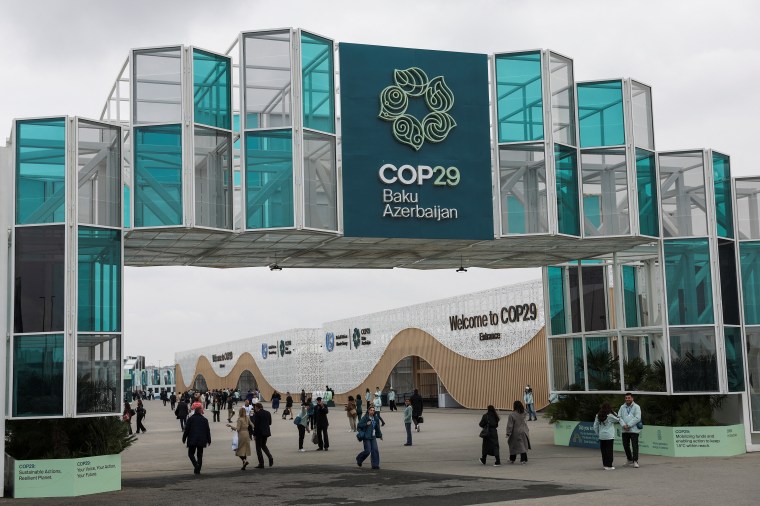New York, November 11, 2024—With the opening of the United Nations annual climate talks in Azerbaijan on Monday, the Committee to Protect Journalists calls on visiting delegations to press Azerbaijan to end its unprecedented media crackdown.
“With at least 15 journalists awaiting trial on charges that could see them jailed for between eight and 20 years, Azerbaijan’s treatment of the press is absolutely incompatible with the human rights values expected of a United Nations host country,” said Gulnoza Said, CPJ’s Europe and Central Asia program coordinator. “CPJ calls on Azerbaijani authorities to release all unjustly jailed journalists and support press freedom, and for the United Nations to ensure that major events are not held in countries with dire human rights and press freedom records like Azerbaijan”.
On November 6, CPJ and 16 other international human rights organizations called on the European Union to raise directly with the government of Azerbaijan the deteriorating human rights situation in the country.
Over the last year, Azerbaijani authorities have charged at least 15 journalists with major criminal offenses in retaliation for their work, 13 of whom are being held in pretrial detention. Most of those behind bars work for Azerbaijan’s last remaining independent media outlets and face currency smuggling charges related to the alleged receipt of Western donor funds.
Azerbaijan’s relations with the West have deteriorated since 2023 when it seized Nagorno-Karabakh, leading to the flight of the region’s 100,000 ethnic Armenians. In February, President Ilham Aliyev won a fifth consecutive term and in September his party won a parliamentary majority in elections that observers criticized as restrictive.
